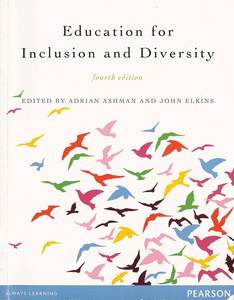Facts about ... hearing and hearing impairment
Pagliano, Paul (2012) Facts about ... hearing and hearing impairment. In: Ashman, Adrian, and Elkins, John, (eds.) Education for Inclusion and Diversity. Pearson, Frenchs Forest ,NSW, Australia, pp. 223-224.
![[img]](https://researchonline.jcu.edu.au/21325/3.hassmallThumbnailVersion/21335_Pagliano_%26_Gillies_2012_Book_Cover_.jpg)
|
Image (JPEG) (Book Cover)
- Cover Image
Download (149kB) |
|
|
PDF (Published Version)
- Published Version
Restricted to Repository staff only |
Abstract
[Extract] Hearing is extremely important for learning. School and classroom communications are largely based on spoken language, which requires hearing. Hearing plays a key role in acquiring spoken language, so hearing difficulties affect all levels of communication. If you teach a student with hearing impairment, a specialist teacher in hearing impairment can provide you with information about the student's hearing and learning needs, make specialist resources available to you, and help you to develop an Individual Education Plan (rEP) for the student.
Three important terms you need to know are: • auditory functioning (i.e., the way a person uses their hearing); • auditory efficiency (i.e., the ease and comfort in performing an auditory task); and • auditory perception (i.e., the ability of the student to interpret auditory information).
| Item ID: | 21325 |
|---|---|
| Item Type: | Book Chapter (Teaching Material) |
| ISBN: | 978-1-4425-4026-2 |
| Keywords: | hearing, hearing impairment, hard of hearing, deaf, deaf education |
| Date Deposited: | 18 Jun 2012 05:31 |
| FoR Codes: | 13 EDUCATION > 1303 Specialist Studies in Education > 130312 Special Education and Disability @ 100% |
| SEO Codes: | 93 EDUCATION AND TRAINING > 9399 Other Education and Training > 939907 Special Needs Education @ 100% |
| Downloads: |
Total: 485 Last 12 Months: 5 |
| More Statistics |



